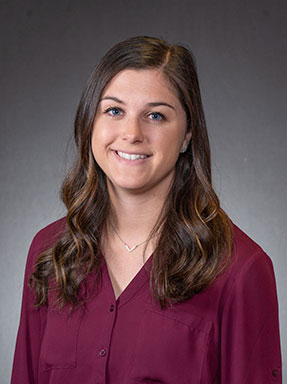Q&A: How Effective Are Suicide Interventions?
When Paula Adamo, a teaching professor in the College of Arts, Humanities and Social Sciences, attends her hooding ceremony this week after completing her PhD in curriculum and instruction out of the Morgridge College of Education, it will mark the end of a six-year journey. But for Adamo, it’s just the beginning. Her graduation symbolizes more than the culmination of her studies and degree requirements.
“It means that with lots of intention, planning, commitment and much support from mentors, family, friends, babysitters and neighbors, you can do it,” Adamo says. “Personally it means I’m ready for my next challenge. For me, it wasn’t about the degree. It was really about the journey and love of the learning.”
Adamo’s journey at the University of Denver began in the early 2000s when, newly married, she arrived on campus to pursue her undergraduate degree.
“I’m Argentinian, and I really feel like DU has become my home away from home,” Adamo says. “It has given me great opportunities to grow and to have my roots here. DU feels big enough for you to expand and small enough to make your home, even when you’re coming from another country and don’t have a lot of family around.”
After double majoring in Spanish and English, after completing a master’s degree at CU and working in a staff position, she was hired full time to teach Spanish at DU in 2007.
“It’s a place where there is so much creativity and so much intellectual curiosity,” Adamo says about why she loves working in higher education. “There are so many opportunities to have great conversations and great projects with students, staff and faculty. Every time I feel like, ‘Ok, I’m ready for something else,’ DU has provided a structure for me to embrace that.”
That love for collaboration and continuous learning inspired Adamo to start classes at the Morgridge College of Education. “I had reached a point where I had grown enough, and I was ready to add something else to push me to learn more in different ways. I was ready for my next challenge,” she says.
Over the next years, Adamo learned to juggle all the different areas of her life — taking six classes a year for her PhD program, teaching several classes herself, taking care of her two young children and even stepping into a teacher role when their schools shut down during the pandemic. That was in addition to working on her dissertation.
“I embraced the challenge, like this is something I really want to do, so how can I still do it while continuing to give 100% to my teaching and service, my family and all my other responsibilities,” Adamo says. “Obviously it took a lot of creative thinking.”
That’s when Adamo found a routine to maximize her productivity. For six years, she would wake up at 4 a.m. every day and spend the hours before her kids woke up reading, writing, grading and planning for classes. The rest of her work day was devoted to teaching, meetings and her DU responsibilities. Many days, she took evening classes before coming home to focus on her role as mom.
“It felt like it took a village,” Adamo recalls. “It was not just me. I had to be really creative on how to make it work. Despite all my different roles, I didn’t want to cut corners. Defending my thesis was definitely a victory, but not just for me, for everyone that helped that happen.”
As Adamo closes this chapter at her hooding ceremony this week, she’s already looking ahead to her next challenge. “I enrolled in another class,” she says. “There was this amazing class offered, so I think I’m going to keep taking classes I find relevant and meaningful.”



